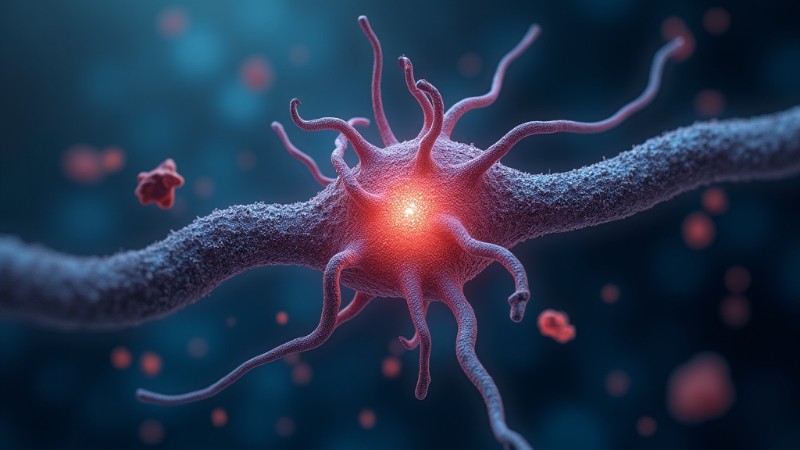Dementia is a debilitating condition affecting millions of people worldwide, placing immense stress on both patients and caregivers. As populations age, the prevalence of dementia-related diseases, such as Alzheimer’s, continues to grow, creating an urgent need for innovative approaches to managing care.
Advances in artificial intelligence (AI) offer promising solutions to improve the quality of life for dementia patients and provide much-needed support to caregivers. From early diagnosis to daily management, AI is transforming how dementia care is delivered, offering tools for better monitoring, communication, and personalized care.
Key Takeaways
AI is transforming dementia care by improving early diagnosis, medication management, and caregiver support.
- AI-powered tools can analyze data from brain scans and medical records to detect early signs of dementia, leading to better planning and treatment.
- Personalized care plans created with AI take into account a patient’s medical history, current symptoms, and living environment to provide tailored care strategies.
- AI-assisted robots and virtual assistants offer companionship, support, and practical assistance to caregivers, reducing stress and burnout.
The growing need for advanced dementia care
Dementia, an umbrella term for various neurological conditions, affects cognitive functions like memory, reasoning, and communication. The World Health Organization (WHO) estimates that over 55 million people worldwide live with dementia, with numbers expected to reach 139 million by 2050 due to an aging global population. The impact on families and healthcare systems is profound, as the condition requires constant care and supervision, often leading to burnout among caregivers.
Traditional methods of managing dementia involve a mix of medication, in-person care, and lifestyle adjustments. However, these approaches can fall short in meeting the complex and evolving needs of patients. As a result, there is a growing focus on how technology, particularly AI, can enhance current care models and offer sustainable, effective solutions that ease the burden on healthcare professionals and caregivers.
AI-powered tools for early diagnosis
Early diagnosis is crucial in dementia care, leading to better planning and treatment. AI is transforming this by analyzing data like brain scans and medical records to detect early signs of dementia. Machine learning algorithms can quickly process large amounts of information, providing faster and more accurate diagnoses than traditional methods.
For instance, researchers are developing AI systems that can analyze MRI and PET scans to detect early signs of Alzheimer’s disease before symptoms become apparent. These systems use pattern recognition to identify subtle changes in brain structure and activity, providing a non-invasive and more accessible diagnostic tool. In addition, AI tools can analyze speech patterns, cognitive tests, and even eye movements to identify early warning signs of cognitive decline.
Personalized care plans with AI
AI’s ability to analyze and interpret large datasets also allows for the development of highly personalized care plans. No two dementia patients experience the condition in the same way; symptoms, progression rates, and care needs vary widely. AI can take into account a patient’s medical history, current symptoms, and even their living environment to create customized care strategies that are tailored to their specific needs.
This personalized approach extends to medication management as well. AI can help monitor how patients respond to treatments, adjusting dosages or suggesting alternative therapies based on real-time data. This not only improves patient outcomes but also reduces the risk of adverse side effects that can occur when medications are not properly managed.
In-home AI systems can further assist by monitoring a patient’s daily activities and providing reminders for medication, meals, or other critical routines. These systems can also alert caregivers or medical professionals if the patient exhibits unusual behavior, such as confusion or wandering, ensuring timely interventions and reducing the risk of harm.
Supporting caregivers with AI
Caregivers, both family members and professionals, often face significant physical and emotional challenges while providing continuous care for dementia patients. The demands can lead to stress and burnout. Technology is helping ease these burdens by offering tools to streamline care management.
AI-powered apps and platforms allow caregivers to monitor patients remotely, providing real-time updates on a patient’s well-being, such as their sleep patterns, physical activity, or emotional state. For example, wearable devices equipped with sensors can track a patient’s vital signs and movements, transmitting this data to an AI system that analyzes it for potential issues. If the system detects a problem, such as a sudden drop in activity levels or an irregular heart rate, it can notify the caregiver immediately.
irtual assistants offer valuable support to caregivers by handling routine tasks such as scheduling appointments, managing medication, and engaging patients in cognitive exercises. They can also provide companionship through conversations or music, helping reduce feelings of loneliness and anxiety common in dementia patients.
Predictive insights further aid caregivers by analyzing behavioral patterns and anticipating agitation or confusion. This allows caregivers to prepare in advance, reducing the stress of managing unpredictable symptoms and enabling more proactive care.
Cognitive training and mental stimulation
AI is also playing a crucial role in cognitive rehabilitation for dementia patients. Maintaining mental activity is key to slowing cognitive decline, and AI-powered tools offer innovative ways to engage patients in exercises that stimulate the brain. Interactive apps, for example, can be tailored to the patient’s cognitive abilities, adjusting the difficulty level of tasks to provide the right level of challenge without causing frustration.
These apps use gamification to make cognitive training more engaging. Patients can play memory games, solve puzzles, or explore virtual environments that simulate real-world tasks. AI tracks their progress and adapts activities for a personalized experience, helping to strengthen cognitive skills.
Moreover, AI can analyze how patients respond to different types of cognitive activities, identifying which exercises are most effective in slowing cognitive decline. This data-driven approach allows caregivers and medical professionals to design targeted rehabilitation plans that offer the greatest benefits to each patient.
AI in robotics for dementia care
Robotic companions are another AI-powered solution gaining traction in dementia care. These robots are designed to provide companionship, assist with daily activities, and help alleviate the loneliness often experienced by dementia patients. Equipped with AI, these robotic assistants can engage in conversations, remind patients of important tasks, and even guide them through exercises or routines.
Devices like PARO, a therapeutic robot resembling a baby seal, have been shown to reduce anxiety and improve mood. Equipped with sensors, they respond to touch and sound, creating a calming effect and enhancing patient engagement, which helps reduce agitation.
These robots also assist with practical tasks, such as helping patients with mobility or reminding them to stay hydrated, lightening the load for caregivers and enabling them to focus on more complex care needs.
Ethical considerations and challenges
While AI offers significant benefits for dementia care, it also raises ethical concerns. The use of AI in healthcare, particularly for vulnerable populations such as dementia patients, must be approached with caution. Privacy is a major concern, as AI systems often rely on collecting and analyzing vast amounts of personal data, including health records, daily routines, and even emotional states. Ensuring that this data is protected and used ethically is crucial to maintaining patient trust and safety.
Another challenge is ensuring that AI solutions are accessible to all dementia patients, regardless of socioeconomic status. High costs and a lack of digital literacy can prevent some patients and caregivers from benefiting from AI technologies. Ensuring equitable access to AI-powered dementia care tools will require efforts from policymakers, healthcare providers, and technology developers to bridge the gap.
The future of AI in dementia care
As AI technology continues to evolve, its potential to transform dementia care is vast. Future developments may include AI systems that can predict disease progression with even greater accuracy, robots that provide more advanced emotional support, and virtual reality environments that offer immersive cognitive therapy experiences.
The integration of advanced technology into dementia care offers promising improvements, from early diagnosis to personalized treatment and emotional support. To ensure these advancements benefit everyone, it’s important to address ethical and accessibility concerns for both patients and caregivers.
As technology progresses, it will shape dementia care into more efficient, personalized, and supportive systems. Prioritizing patient well-being and offering much-needed support to caregivers will be essential as these solutions evolve.














